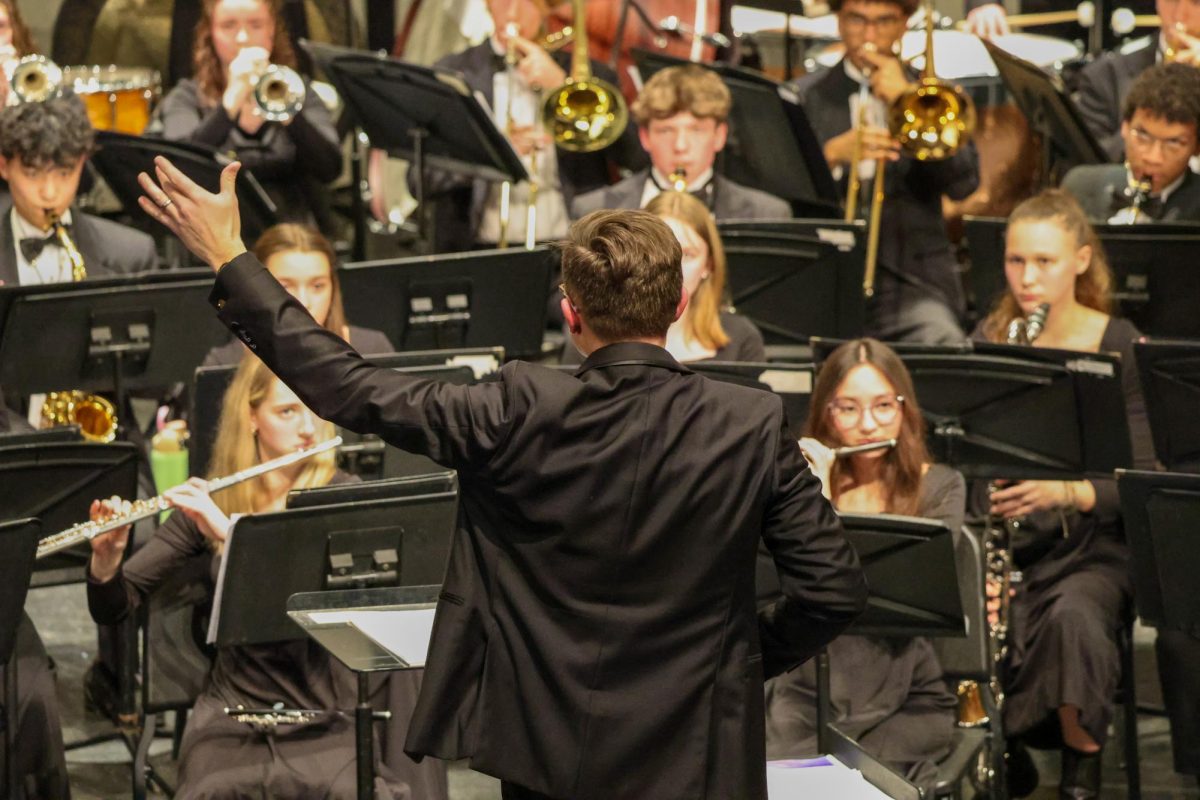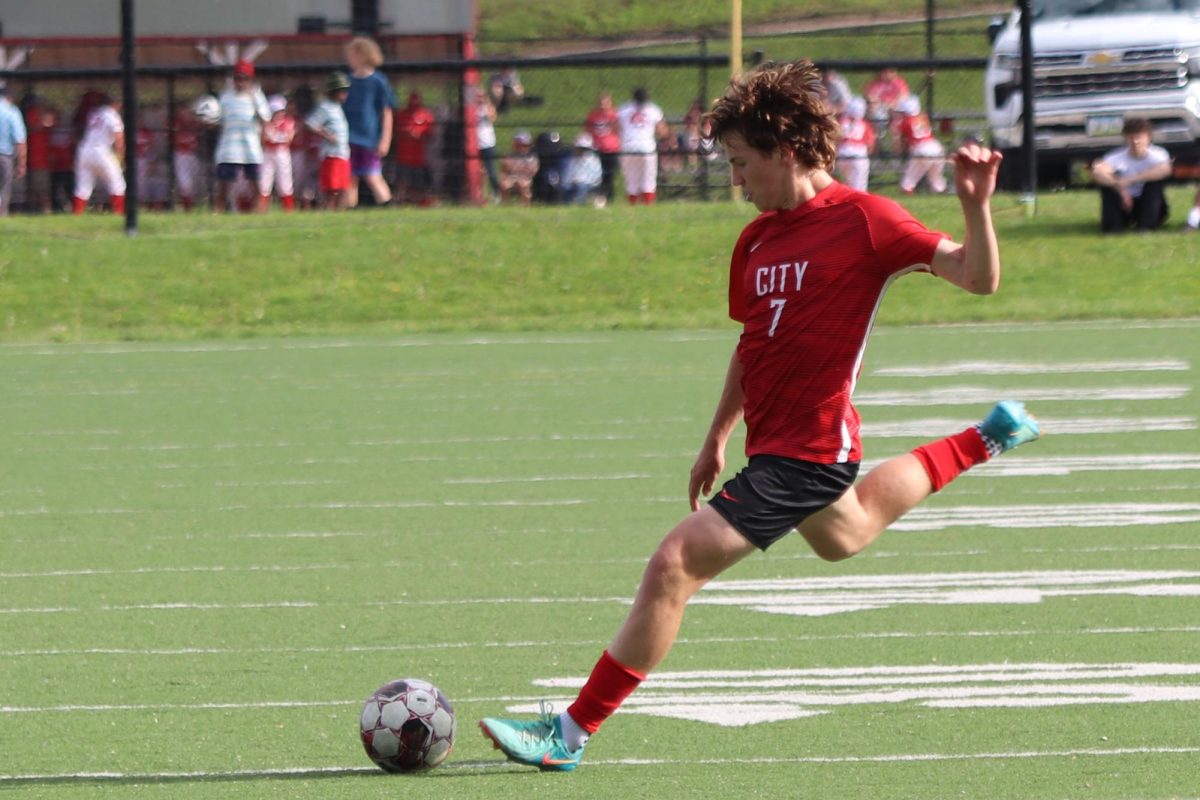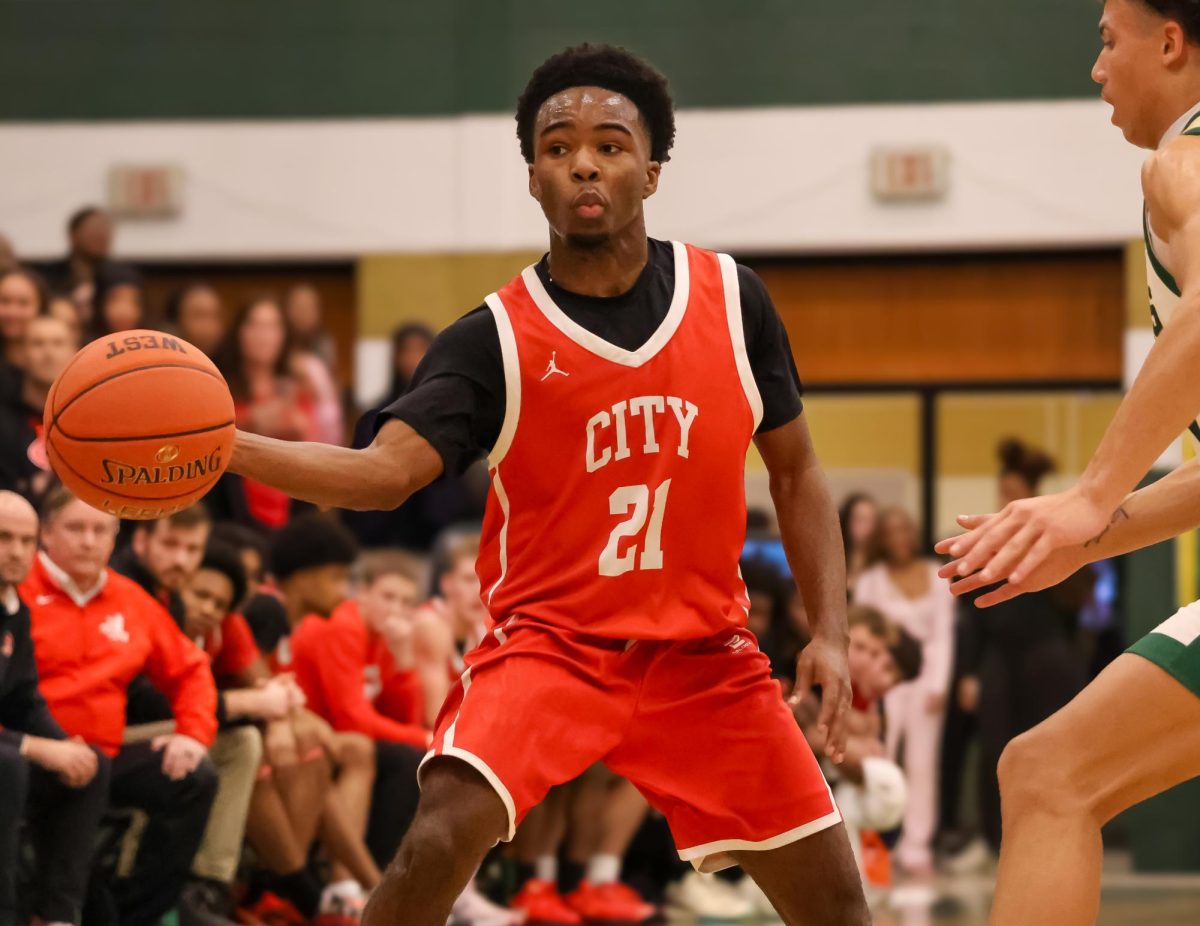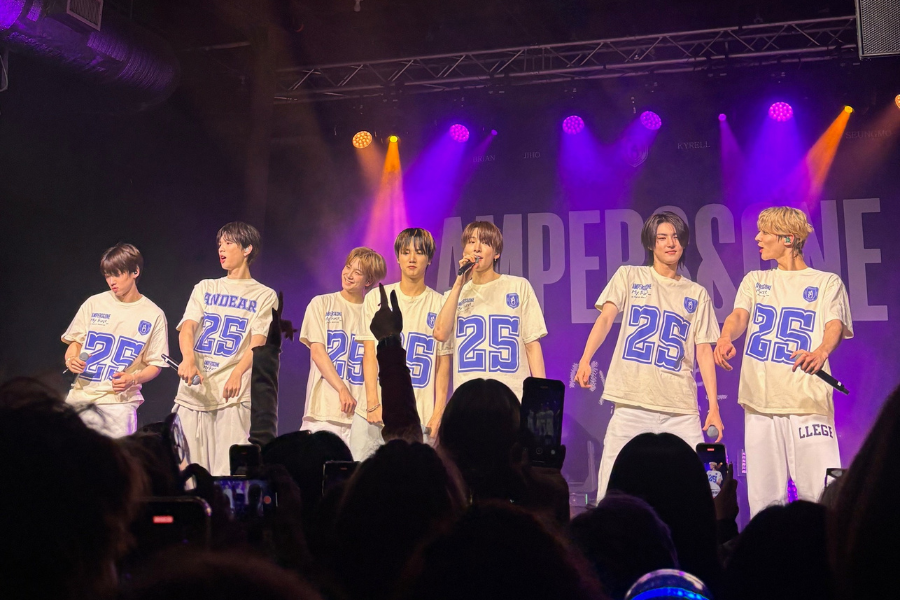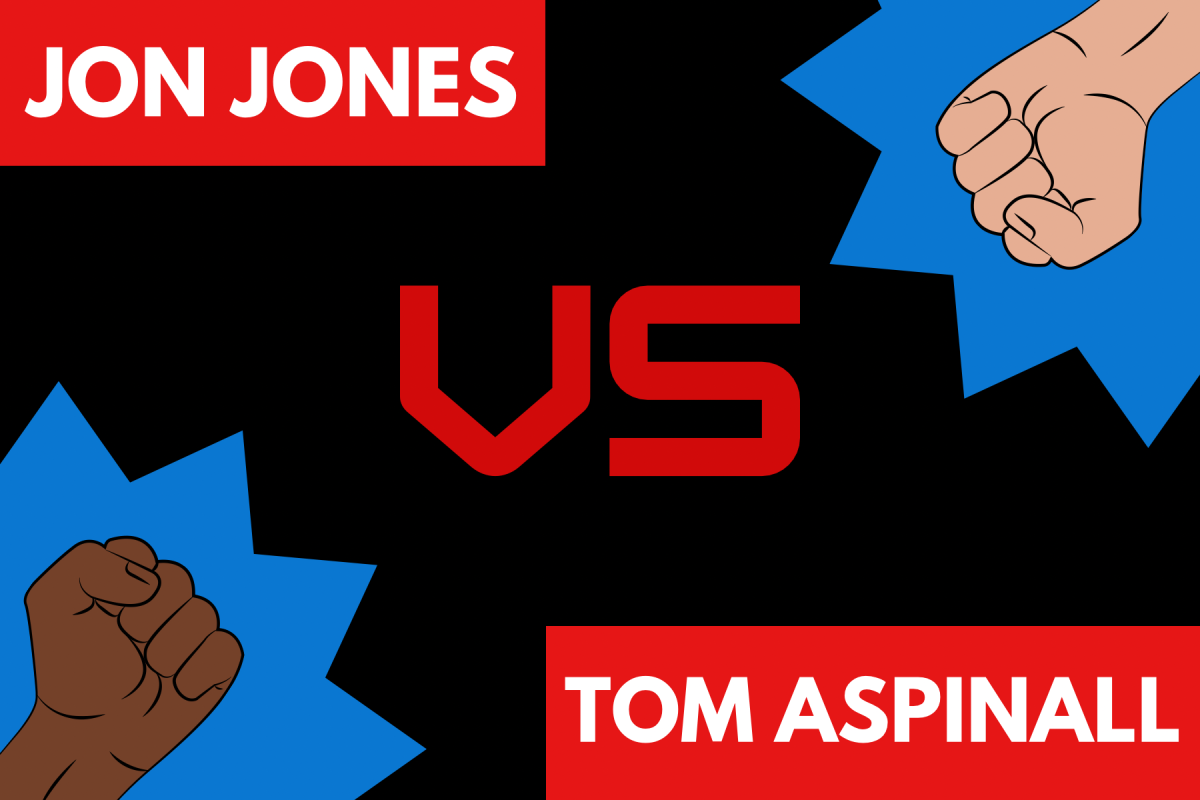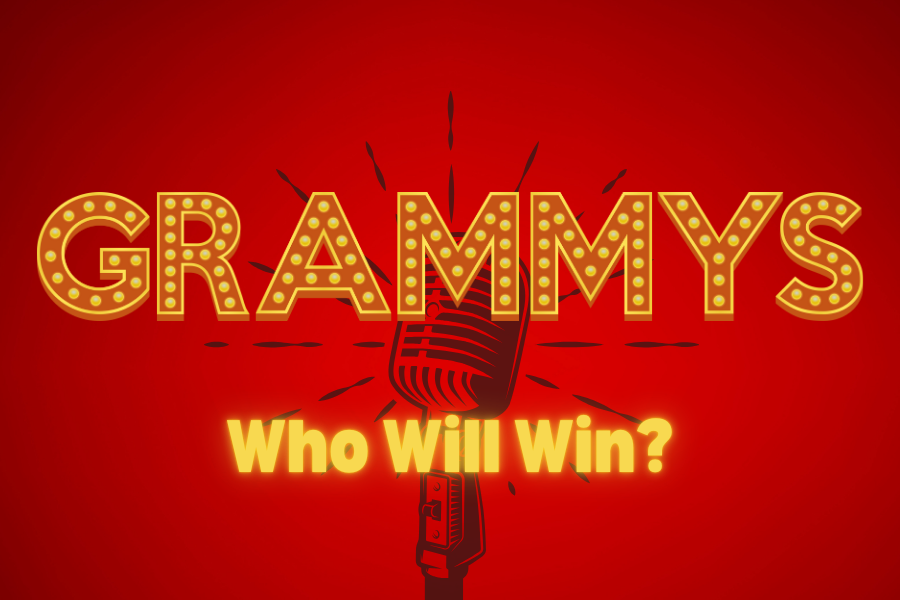New Fighting Policy Hits City High
City High implements new no tolerance fighting policy.
December 21, 2022
This fall the I.C.C.S.D implemented a new policy for students involved in fighting. After the first fight students will now have a behavior contract that can include losing a phone for 30 days. After the second fight students will attend online school for 30 days. If a third fight occurs after returning from online school students will attend 60 days of online school.
The email from the district went on to explain they are to support students and provide a safe place for all students to learn.
“We really want to eliminate physical fighting in the building. That has no place here. It has no place in our high schools. That is just not the way that we can solve conflict,” Principal John Bacon said. “And it is an unsafe behavior. And it is just one of our non-negotiables here at City High. So if a student does have a fight, we go through the process”
The exact reason for the fights is unknown, but there’s a possibility they could be connected to the pandemic.
“I think the reality is that students, for all intents and purposes, have lost nearly two years of normalcy. As a result, there is evidence that some students may need more support with social and emotional development, the maturation process may have been inhibited and they’re curbed a little bit by the two years of school that were really bizarre and really abnormal,” Bacon said.
This year particularly has had several accounts early on in the year of fighting and reports of incidents. A loss of consistency in education from junior high has led to a rise in aggression in high school.
“They might have only had a couple of months of normalcy in their entire junior high experience, and junior high are foundational preparatory years to be successful in high school,” says Bacon, “That’s why it’s called junior high school. I definitely think the abnormal conditions that we experienced probably contributed to some students lagging a little bit behind in terms of where their conflict resolution skills, maturity level, and experience learning how to work through anger and frustration in a more positive way are,” commented Bacon.
The new policy, sent out in an email to all teachers, parents, and administrators, highlights a zero tolerance attitude toward aggression and physical incidents. After a first offense, there’s a contract and behavioral plan. The big change being that if a student got into their second altercation, they would be sent to the online school for 30 days. If once they return, they participate in another fight or act of aggression, they would be sent online for 60 days.
“This is probably not a perfect policy. None of us want to see someone to be in the online program for 30 days. That’s not what we want. That’s not what we think is best for that individual student,” says Bacon, “And we want to do everything in our power to avoid that. My sincere hope is that we have a grand total of zero students. Have that happen to them. That’s our goal.”
According to the district, the goal of the new policy is to deter students from making decisions leading them into physical altercations, as well as supporting students in their return from an online-school suspension. Instead of dropping students back into school after being online, there’s support to slowly integrate them back into their classes and the opportunity to catch up with school work.
“In addition to their online courses that they would be enrolled in, there will also be an expectation that they complete a class module online. It’s basically a class designed to offer students more strategies that are more appropriate ways of solving conflict. So kind of a positive conflict resolution module, alternatives to fighting, that students will be expected to work their way through before they can start back [in person].”
The policy concludes with the loss of cell phone access for students integrating back into in-person school. Phones are taken so that students can focus on education and avoid the distraction and roles phones play leading up to incidents.
“Coming back from a suspension, students are going to lose the privilege of having their cell phone during the school day for a period of one month,” Bacon explained, “We really want students when they’ve been out of school for a suspension to come back in and be able to fully focus on their education in their classes. The cell phone is a very powerful distraction.”
The other main reason the policy includes loss of cell phone access is due to the role they play leading up to incidents.
“We believe many times the cell phone plays a role in incidents that can lead to a suspension in the first place. Whether it’s negativity on social media, whether it’s inappropriate texting back and forth between students that may be leading up to an altercation, too many times I can tell you cell phones play a role in the lead up to a problem, not every time, but many times,” Principal Bacon said.
The new policy also has an educational component for students. A goal of the policy is to teach students a way to deal with conflict in a manner that’s acceptable within society and the rest of the world.
“Our job here is to help kids be prepared for success in life. And so it’s very, very important to me that we help students understand physical fighting is not the answer to a conflict,” Bacon said. “And we need to help students learn more positive ways to work through conflict, which is a natural, normal part of life.”
Following the new policy comes the implementation of hall passes. The idea is to keep students out of the hallways to help reduce the number of incidents. The pass includes one uniform pass with a 20-minute expiration period. Only one student is allowed to leave the classroom at a time, and students are not allowed to be in the hallways during the first and last ten minutes of class; an effort to help reduce the number of incidents.
“I do appreciate that the administration is taking action on this issue, but it seems like there’s more that needs to be done at the root of the problem than just the hallways. [Hall Passes] seem very surface level,” says student body co-president Mary Cate Pugh.
Pugh believes the hall passes are an unnecessary edition consequential of the new fighting policy. The student co-president isn’t convinced that the Hall Passes contribute to the solution.
“Fighting is going to happen in school or out of school. I think what the administration was trying to do was minimize the traffic that’s going on during class in the hallways, but I’m not convinced it’s going to be helpful. I think it causes more frustration and hassle than it’s going to decrease fighting,” says Pugh. “Because there’s no way at this point to see if the hall passes are actually decreasing fighting, I think a lot of people are disregarding it, and nobody’s convinced this is going to work.”








